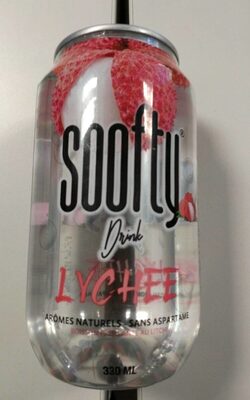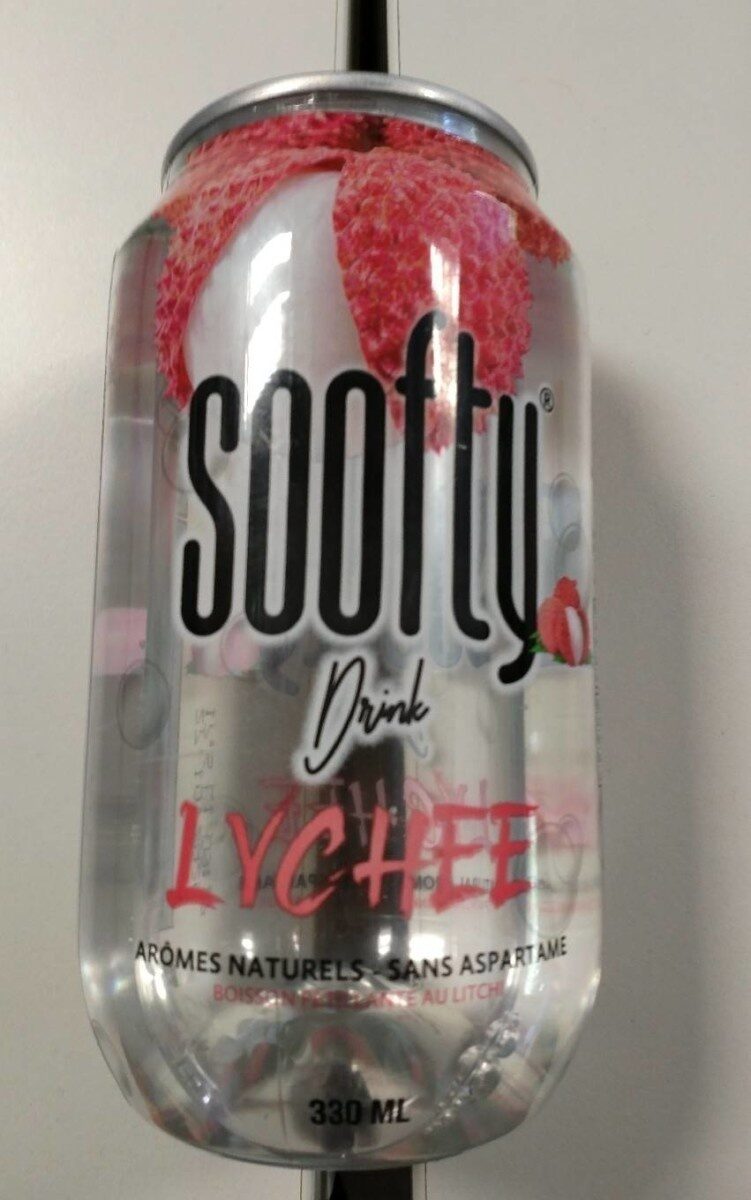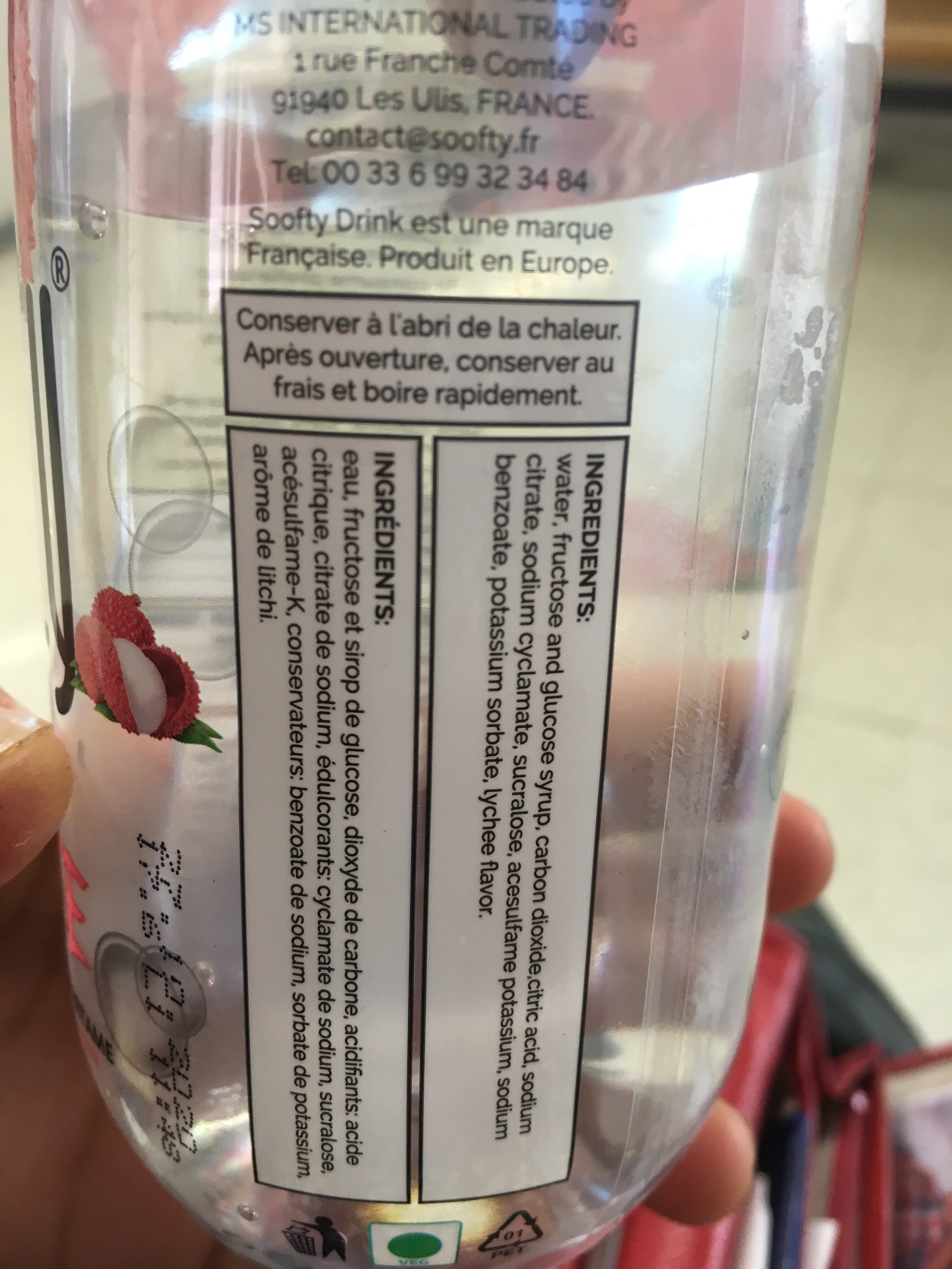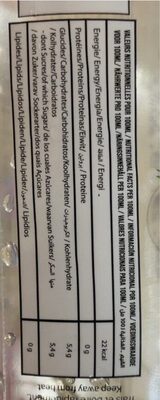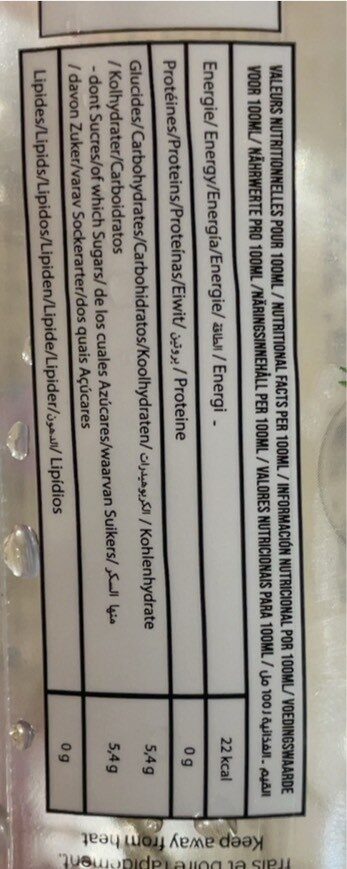Soofty Drink Lychee - 330ml
This product page is not complete. You can help to complete it by editing it and adding more data from the photos we have, or by taking more photos using the app for Android or iPhone/iPad. Thank you!
×
Barcode: 3504110019176 (EAN / EAN-13)
Quantity: 330ml
Brands: Soofty
Categories: Beverages, Carbonated drinks, Artificially sweetened beverages, Sweetened beverages
Labels, certifications, awards: No colorings
Countries where sold: France
Matching with your preferences
Environment
Packaging
Transportation
Report a problem
Data sources
Product added on by kiliweb
Last edit of product page on by inf.
Product page also edited by hanjo, lucas30, mobr, openfoodfacts-contributors, ricardo62, roboto-app, yuka.RnI0TVNLQmN1ZnN6bi9NaXJ6ZmYvNDVveWJxMlRXMjBDOUFySVE9PQ, yuka.V0pzNFBLQTYrdjlibDgweTdESEsvc0pzenJDWlIwL3FPZk02SUE9PQ, yuka.sY2b0xO6T85zoF3NwEKvlhcaVMDa-yrFGC3Uv0CU7c-OcK7Ma44r66nbM6s, yuka.sY2b0xO6T85zoF3NwEKvlmkaXMf6kAzmESbfkB2NmP6xIobKf912_LPkIqg.
